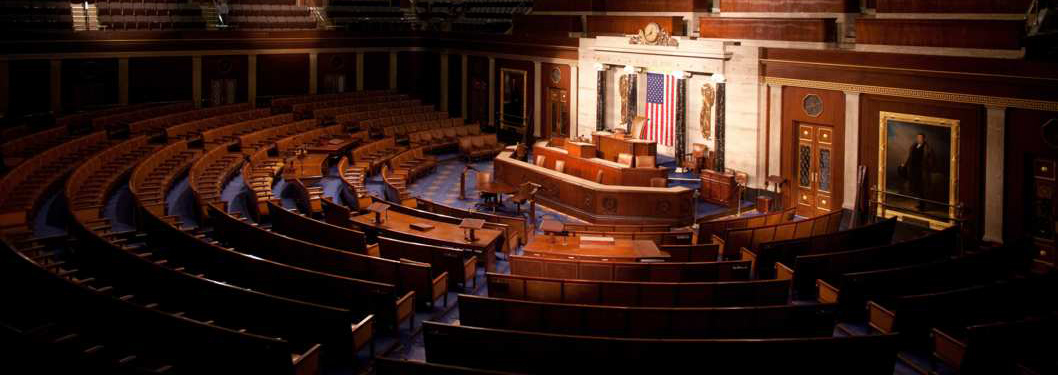
As Congress adjourned for its five-week recess on July 28, the Georgia Forestry Association’s (GFA) national partners – the National Alliance of Forest Owners (NAFO), the Forest Resources Association (FRA) and the American Forest & Paper Association (AF&PA) – have continued their efforts on federal issues impacting Georgia’s forestry community.
Though incremental progress has been made, engagement is still needed to remind members of Congress of the importance of timber tax provisions in the federal tax code and truck weight reform. In addition, Congress is expected to continue to weigh in on the Environmental Protection Agency’s rule on Waters of the United States (WOTUS) and the carbon neutrality of forest biomass.
“These issues have the potential to adversely impact the forestry community in Georgia and the United States,” GFA President Steve McWilliams said. “It is critical that Georgia’s forest landowners, forestry-related businesses and forest product manufacturers continue to remain engaged on these issues during and following the August recess.”
GFA members are encouraged to continue to remind members of Congress of the importance of the issues detailed below. Visit the Association’s Federal Issues and Action Items page regularly to stay up to date on the latest developments.
[wptabs type=”accordion” mode=”horizontal”]
[wptabtitle]Action Needed: Timber Tax Provisions[/wptabtitle] [wptabcontent]
Tax reform is off the table for the balance of the 114th Congress. Due to the continued engagement of the forestry community, eighty Representatives signed a letter to the Ways and Means Committee supporting the preservation of current timberland tax provisions in the federal tax code.
The Georgia Congressional delegation expressed strong support in the effort with eight out of 14 members signing on to the letter. Members who signed on to the letter include: Rep. Buddy Carter (R-1), Rep. Sanford Bishop Jr. (D-2), Rep. Lynn Westmoreland (R-3), Rep. Austin Scott (R-8), Rep. Doug Collins (R-9), Rep. Jody Hice (R-10), Rep. Rick Allen (R-12) and Rep. Tom Graves (R-14). GFA members are encouraged to thank members of the Georgia congressional delegation who signed the House letter and urge their continued support.
The fight to preserve the timber tax provisions in the federal tax code is expected to continue well into 2017. GFA members are also encouraged to sign an online petition in support of these provisions. The petition will be used to continue engagement at the federal level as tax reform proposals are considered in the near future.
[button href=”https://gfagrow.org/advocacy/legislative-action-center/take-action/tell-congress-to-maintain-a-fair-forestland-tax-policy/”]Sign the Petition[/button]
[/wptabcontent]
[wptabtitle]Action Needed: Truck Weight Reform[/wptabtitle] [wptabcontent]
Although transport from woods to mill is a relatively brief phase of the wood supply process, it accounts for approximately 30 percent of the total cost of raw material. While technological development has lowered the per-unit cost of harvesting, federal truck weight rules—limiting gross vehicle weight to 80,000 pounds on five axles on the Interstate system—have prevented significant savings in basic transport.
As the House takes up highway bill negotiations in Sept., Rep. Reid Ribble (R-Wisconsin) plans to introduce truck weight reform legislation. This bill, the Safe, Flexibile and Efficient Trucking Act (short form “Safe Trucking Act”) is similar to the SETA of past Congresses, but it reduces the maximum allowable weight to 91,000 pounds, making it compliant with the federal bridge formula. Otherwise, like SETA, it is a state “opt-in” measure and requires addition of a sixth axle. Being bridge formula compliant, it does not call for a supplement to the Heavy Vehicle Use Tax.
On August 25, the Coalition for Transportation Productivity endorsed Rep. Ribble’s legislation. Click here to download a flyer that explains the benefits of the 91,000 pound configuration.
It is important to raise awareness and gather support for reform this August, before the House reconvenes in September. GFA members are encouraged to ask their House member to make truck weight reform a highway bill priority.
[button href=”https://gfagrow.org/advocacy/legislative-action-center/take-action/truck-weight-reform/”]Write Your Congressman[/button]
[/wptabcontent]
[wptabtitle]New Developments: Waters of the United States[/wptabtitle] [wptabcontent]
After months of debate, thousands of comments from the forestry and ag community and clear direction from Congress and the courts, the Environmental Protection Agency released its final rule on “Waters of the United States” (WOTUS) on May 27 – officially defining waters that are subject to EPA’s regulatory jurisdiction.
Although the agencies characterized their revisions as narrowing the scope of WOTUS to address several court decisions, some land features previously considered not subject to Clean Water Act now will fall within the definitions of the new rule.
In response, Senate Environment and Public Works Committee recently approved the Federal Water Quality Protection Act, S. 1140 to force EPA and the U.S. Army Corps of Engineers to scrap their interpretation and craft a new rule to align with Congress’ intent. In addition, Georgia Attorney General Sam Olens has filed a lawsuit asking the federal court to strike down the new rule.
[button href=”https://gfagrow.org/advocacy/legislative-action-center/take-action/”]Learn More[/button]
[/wptabcontent]
[wptabtitle]New Developments: Carbon Neutrality of Forest Biomass[/wptabtitle] [wptabcontent]
On August 3, the Environmental Protection Agency (EPA) issued a rule for each state to regulate greenhouse gas emissions for existing power plants under the Clean Power Plan. The rule creates a daunting set of hurdles for the use of forest biomass energy, though it does allow a path forward for energy from mill residuals like pulping liquor.
Forestry associations, such as NAFO and FRA, are currently working with Congress to seek a simpler solution. House and Senate appropriations bills each include a provision to remove forest biomass carbon dioxide emissions from regulation as long as U.S. forests are stable or increasing. Industry will seek adoption of this language in the year-end government spending bill.
On June 30, Senators Susan Collins (R-ME), Jeff Merkley (D-OR), and 44 other Senators sent a bipartisan letter to U.S. Environmental Protection Agency Administrator Gina McCarthy, Department of Energy Secretary Ernest Moniz and Department of Agriculture Secretary Tom Vilsack urging recognition of forest biomass as carbon neutral in forthcoming policy. On July 31, Representatives Reid Ribble (R-WI) and Sanford Bishop (D-GA) sent a similar bipartisan letter signed by 154 Members of the House of Representatives.
[button href=”https://gfagrow.org/advocacy/legislative-action-center/take-action/”]Learn More[/button]
[/wptabcontent]
[/wptabs]

